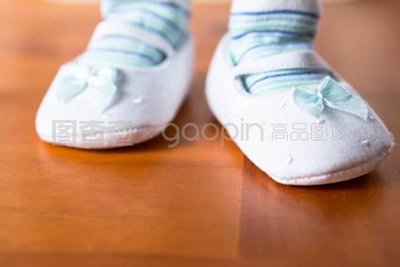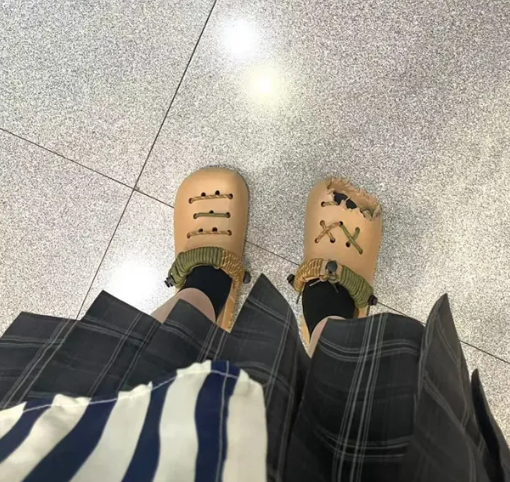
The sole is too soft and has poor stability
Soft and fluffy soles can weaken our control over the feet, making it difficult to stand steadily. Over time, this can increase the risk of sprains and other foot problems, especially for people who already have problems with their feet such as inversion or eversion. Slippers with excessively soft soles can exacerbate their own foot problems.
1.Insufficient support
The sole of the shoe is too soft, providing insufficient support to the sole of the foot, which can easily lead to arch collapse and functional flat feet. A collapsed arch of the foot can affect a person's standing and walking posture, as well as their foot support. It can also cause swelling, pain, and even spasms in the calf muscles due to compression of the blood vessels and nerves in the foot.
2.Causing poor posture
Due to the poor stability and insufficient support of overly soft slippers, foot problems can gradually affect our leg shape and even cause lumbar pain, scoliosis, pelvic tilt, and other problems, resulting in poor posture.


The reason why it is prohibited to wear perforated shoes on escalators is mainly because it can easily cause safety accidents, especially for children wearing perforated shoes. Wearing perforated shoes on escalators is prone to accidents.
Hole shoes have a wide toe (about 20% wider than normal shoes), and to ensure comfort, the plastic is thick and the shoe upper is high. Therefore, even when standing in a normal position, the toe is much closer to the serrated area between the two elevator steps than normal shoes. At the same time, due to insufficient friction between the plastic sole and the foot, people's habit of standing can cause the shoe to move forward. In addition, the friction between the plastic and the elevator is relatively high, making it difficult to detect when clamped in. When the foot feels it, it cannot be pulled out, which can easily cause accidents.
Simply put, the material of perforated shoes is soft and easy to adhere to when rubbing against metal or other surfaces. Without lifting the foot in time, it is easy to adhere to the front and side escalator step teeth, causing them to curl up and get caught in the gap between the steps and the apron.
How to choose suitable slippers
1. The sole is moderately soft and hard, with sufficient rebound force, which can provide some rebound support for the arch of the foot and also relax the foot.
2. Try to choose slippers made of EVA material as much as possible. EVA material is more environmentally friendly compared to PVC material, and it has a closed structure that is waterproof, odorless, and very lightweight.
3. Choose slippers with relatively smooth surfaces that are easy to clean. Too many patterns on slippers can easily accumulate dirt and bacteria, which not only make them stinky but also affect foot health.
Regardless of the material and craftsmanship of the slippers, they will age over time and dirt will penetrate the inside of the slippers. Therefore, it is best to replace the slippers every one to two years.